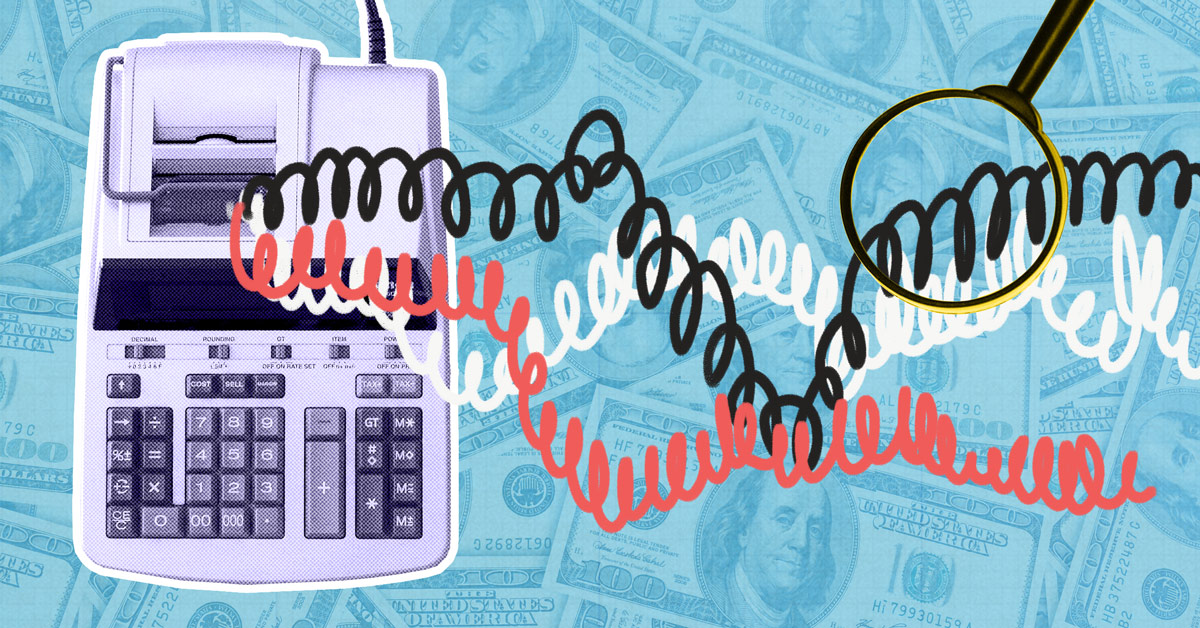Bookkeeping is many entrepreneurs’ least favorite part of owning a business. As important as these tasks are, they can often feel tedious and draining for owners who are already juggling the many demands of business ownership.
But bookkeeping is crucial for the long-term health and viability of your business. With a bit of planning, you can take the stress out of bookkeeping and avoid unpleasant financial surprises that could put your business at risk.
Although bookkeeping isn’t particularly exciting, there’s so much help and guidance available for business owners that there’s no need for it to be a hated chore. This quick-start guide will cover the basic principles of small business bookkeeping and offer suggestions on getting started.
What Is Bookkeeping and Why Does It Matter?
Bookkeeping helps you understand the flow of money, assets, and liabilities in and out of your small business. Ensure you are diligent and careful about recording every time money changes hands within your company.
There are many ways to record these transactions, including paper receipts, credit card statements, electronic invoices, and more. You may choose to enlist the help of an accountant to help you monitor your business’ financial health, but it’s by no means necessary. From manual Excel spreadsheets to specialized small business accounting software, there are many options to help you manage your books yourself.
Collecting, organizing, and analyzing this information provides a clear picture of your business’s financial health to make intelligent decisions and reach your entrepreneurial goals.
Get Organized
Small business bookkeeping is all about setting up good habits and precise procedures that will help you stay on top of your cash flow and overall finances at all times.
The most important thing to set yourself up for success is separating your personal and business finances. Suppose all your spending is disorganized and flowing from the same place. In that case, you’ll run into headaches and complexity later down the line when getting a picture of your business’s financial standing.
For that reason, setting up a designated business bank account is a must. Even if you’re a sole proprietor and your business doesn’t have a registered name, just opening a second account that you use only for business transactions is perfectly adequate. If possible, open a new credit card to track your business purchases.
This is also the time to settle on a bookkeeping strategy and stick with it. Will you be hiring an accountant? Will you be using software like Quickbooks or Honeybook? If you’ll handle the books yourself, select a specific day of the week or month to update both your incoming and outgoing cash flow ledgers. This will set your business up for long-term financial success.
Next, let’s break down small business bookkeeping into two broad categories: tracking your income and expenses.
Track Your Small Business Income
Tracking income means staying aware of all cash and assets flowing into, or owned by, your business. An example, and likely the largest category, is sales/upsells — money you receive from your customers in exchange for your goods or services.
However, income also encompasses accounts receivable, money owed to you, and the equity or assets you and your business own. You’ll also want to keep a category in your income ledger for profits.
Depending on your business model, it might make sense to track your sales by keeping paper receipts or electronic invoices. If your records are in paper form, you’ll want to scan them so you can file them with your financial records. Assets and equities are unlikely to change frequently, but you still need to record them and keep them up to date. This record-keeping will be essential not just at tax time but also during audits.
Track Your Business’ Expenses
Expenses include all the money you have to spend to keep your business running, like inventory, supplies, payroll, overhead costs such as rent, and accounts payable to vendors and contractors.
All these transactions should be recorded, categorized, and deducted from your business’s gross income, revealing your business’s profitability — how much money you truly earned.
A common way of tracking purchases is by saving your receipts. However, keeping all your purchases to a single business credit card, and referring to your monthly statement, is easier.
For higher, recurring costs like rent and payroll, try keeping payslips or check stubs, especially if you don’t track them with your bank. Also, categorize these costs accurately so your accountant deducts only the expenses that are eligible under your area’s tax laws.
Your tracked income and tracked expenses should live together as two separate spreadsheets within your financial ledger.
Prepare Your Financial Statements
Financial statements are how you collect all the information in your ledgers to create an accurate, comprehensive picture of the health and viability of your business. In general, financial statements include a cash flow analysis, a forecast of expected profit, and a balance sheet.
Large, publicly-traded corporations should to publish these statements every year. Even though you don’t need to publish them, it’s still a wise idea to create your own reports regularly. Financial statements will help you see the bigger picture within all the income and expense data you worked so hard to collect.
This is where all your planning and diligence come in handy. If your records are carefully recorded, it will be easy for your accountant to make these reports. But, of course, you can also create them yourself. Most bookkeeping software will generate them automatically!
Regular financial reporting will help you reach a consistent understanding of where your small business is standing. That means preventing anxiety, addressing problems before they get out of hand, and making data-driven business decisions.
Small Business Bookkeeping and Taxes
Proper bookkeeping is essential for a smooth, low-stress tax season. It will also help you prepare financial reports painlessly.
In general, working with a tax professional is nearly always the best choice for small businesses. Any money you might save by doing taxes yourself will likely be outstripped by the costs of deducting your expenses improperly or failing to comply with the most current tax laws in your area. Your accurate, detailed bookkeeping will help your account do the best job possible when they’re filing your business’ tax returns.
Bookkeeping For Business Growth
Keeping the books for your small business might feel overwhelming or like a hassle. But with a bit of preparation and planning, you might find that bookkeeping becomes second nature. It is just one more daily routine to keep your company up and running.
If you take bookkeeping and financial reporting seriously, you’ll have peace of mind and the knowledge of exactly how your business is doing at any point in time. For a life as exciting — and surprising— as that of an entrepreneur, that’s a luxury well worth the effort.
If you want more tips and tricks to manage and promote your local business, subscribe to our monthly newsletter! You’ll get our latest blog posts and industry insights straight to your inbox!
a

Article by Genevieve Michaels
Genevieve Michaels is a freelance writer based in Vancouver, Canada, focusing on B2B marketing, tech, and software-related content. She holds a Bachelor of Fine Arts in Creative Writing from The University of British Columbia.

